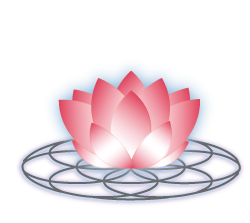With spring finally making it's way here, we can all bath in the wonderful warmth that is spring. However, along with spring, comes pollen - and hay fever. It can be unbearable going through your days with a runny nose, red eyes, and a general sense of "this sucks." Here are a few things you can do to help decrease these symptoms.
Gut health
70-80% of your immune system is found in your gut, and as a result, it play a very important role in balancing your immune system (Vighi). As such, it makes sense to start here, since allergies are an immune response to something outside yourself (includes food, and environment). One way to heal the gut is by eliminating any food sensitivities you have from your diet. This way, your gut can start to heal since it is not constantly being bombarded by reactive foods. The best way to see which foods you are sensitive to is by doing the Elimination Diet, which can last 4-6 weeks, plus a food reintroduction phase - where you DO NOT add any foods that you are anaphylaxis too - which can make it last quite a while. That being said, it is the most accurate way of finding out which foods you are sensitive to. Another way is by doing an IgG test, that you can ask your Naturopathic Doctor or me about. This test is an easy finger prick, and the results tell you which foods your body is sensitive to, based on that finger prick. It saves you from having to commit to a diet and reintroduction phase; however it is not 100% accurate, and there can be foods that it misses, or foods that it added for one reason or another.
Probiotics
Probiotics help regulate your immune system, by interacting with immune cells found in your intestinal track. These interactions have cascading effects throughout your body, depending of the bacteria. Different strains of bacteria can help modulate in different ways, by either exerting immune-activation, deviation, regulation, or suppression responses (Hardy). As such, it is important to know which probiotic you are looking for, and how it effects the immune system. For allergies in particular, Lactobacillus plantarum, Lactobacillus lactis, Bifidobacteria longum, Bifidobacteria breve (Hardy) are the probiotics that have been seen to improve symptoms of allergies. They are able to do this by modulating the immune system and shifting it from a more reactive state to one that is not.
Isoquercetin or Quercetin
Quercetin has been used and recommended for control of allergy symptoms, among other things. It is found in a number of herbs, fruits, and vegetables including: apples, berries, green tea, onions, etc. Quercetin is helpful for allergies because it is able to stabilize mast cells and prevent them from releasing histamine (Natural Medicine, Li) - which causes you to have your allergic symptoms. Quercetin on its own may not be enough to manage your allergy symptoms, and is often recommended with Vitamin C, because they work synergistically. Lastly, I have switched to recommended Isoquercetin instead of quercetin because it is more bioavailable to your body, it is 40 time more absorbed (Valentová).
Stinging Nettle
Stinging nettle is an amazing herb, full of minerals, and helpful for a number of different ailments. They are also a natural anti-histamine (Roschek), without the sedative effect of pharmaceutical anti-histamines. It can be taken as a tea (1-2 tsp/cup, let steep for 15-20 minutes; and drink 2-3 x day), or as a capsule. Find capsules that use freeze dried stinging nettle, for the most effective relief. This herb is safe to sure during pregnancy.
~ Dr. Charmagne

